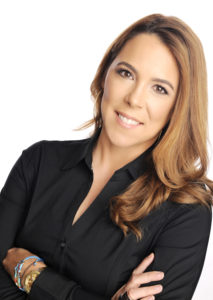When Democratic presidential candidates arrive in Miami for their first debate of the primaries this week, they’ll come face-to-face with a community that witnesses the effects of the climate crisis every day.
The rising seas brought about by a changing climate are no theoretical future proposition for South Florida. In low-lying neighborhoods, we have begun to count sunny-day flooding – flooding that occurs due to the regular high tides – in weeks instead of days each year.
This slow-motion invasion is more than just a nuisance; it and other warming climate impacts are a genuine threat to our health and our livelihoods. Brackish seawater from higher tides seeps into the ground of porous limestone that Miami is built on, tainting the freshwater aquifers where we get our drinking water. Sewers overflow and back up, spewing waste into our neighborhoods.

And while we’re used to dealing with hurricanes, the one-two-three punch of warming waters making the storms stronger, rising seas amplifying the threat a storm surge and beach erosion leaving coastlines more vulnerable means the damage wrought is that much worse.
For many residents of our region, the possibility of a severe storm is potentially devastating. In Miami-Dade County, 58 percent of families are considered poor or working poor – leaving more than half the county one bad hurricane away from ruin.
We saw similar destruction after Hurricane Michael came ashore on the Florida Panhandle last October. The Category 5 tempest, intensified by warming ocean waters, flattened homes and stripped bare the landscape. The region still hasn’t recovered, and won’t for years to come.
And while Category 5 hurricanes are still rare, other warming climate and ocean impacts have become much less so. Beachgoers were chased away from Florida’s shoreline for months last year because of the blue-green algae bloom and red tide, both of which were likely made much worse by agricultural runoff – from factory farms emboldened by weakened state environmental regulations – intensified by more rain, met with water warmed by the changing climate and fueled by excess carbon dioxide levels in our waters.
For many of us in Florida, these toxic blooms do more than just keep us from recreational activities. They can cause severe respiratory illnesses, cripple the tourist economy, and poison sea-life the fishing industry depends on.
To those of us who live here, these facts are familiar. But the presidential hopefuls need to realize that this is not a conversation about the future; it’s here now.
For the next year and a half, Florida will once again be a force in national politics. As they visit us for this first debate and ahead of the primary in March and after the nominee is chosen, candidates must hear what Floridians are saying about the urgency of the climate crisis.
Advocates across Florida are pushing for solutions that will encourage ending our reliance on warming climate pollution and ramping up clean renewable energy. We need to put a price on pollution and redistribute that money as a dividend to all Floridians.
Florida lawmakers have so far failed to put policies in place that would push our energy economy in this direction. We are one of only 13 statesthat haven’t set a renewable energy portfolio standard or goal, so we are punching well below our weight when it comes to generating clean and renewable energy.
There’s no reason Florida shouldn’t be leading the nation on renewables — especially solar — and reap the economic benefits of jobs and innovations brought by the fast-growing renewable sector.
Floridians need to demand more from Florida’s representatives in Washington, including Sens. Marco Rubio and Rick Scott. We need to push back against the current administration, which is once again toyingwith the idea of drilling off our shores.
We spoke loud and clear in voting last fall to pass a constitutional amendment against offshore extraction in state-controlled waters. This administration knows how unpopular offshore drilling is – they already backed offonce for fear it could cost a Senate seat.
The Democrats running would find they have strong support from Floridians for not only respecting our voices, but supporting a federal offshore ban.
When the presidential Democratic candidates arrive in Miami, they will see South Florida’s communities fighting on the front lines of the climate crisis.
The seas are rising, streets flood on sunny days. Storms are getting stronger quicker, days are getting hotter and algal blooms are getting worse. Polls show that climate change is increasingly a top concern for voters in Florida and around the country, and candidates that fail to put forward strong plans to mitigate its impacts will pay the price.
We expect candidates to rise to this existential challenge and make climate action top priority in their agendas. We are in a state of climate emergency.
Yoca Arditi-Rocha is the executive director of the Miami-based The CLEO Institute.
“The Invading Sea” is a collaboration of four South Florida media organizations — the South Florida Sun Sentinel, Miami Herald, Palm Beach Post and WLRN Public Media.



